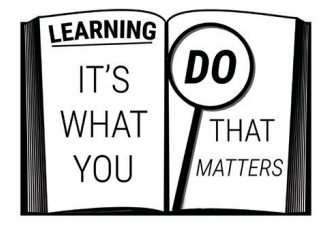By: Paul Dexter, Director of Academic Retention Initiatives & Cristina Kerluke, Academic Support Program Specialist
As with any learning experience, there can be a great deal of excitement, satisfaction, and joy associated with the writing process. Through writing, we can express our thoughts, feelings, beliefs, and assertions. It is an outlet for our creativity, a way to add our voice to the conversation, and a demonstration of our understanding of the world. It is completely normal, though, to experience some self-doubt or even some stress associated with writing. However, have confidence in knowing that everyone can become a stronger writer!
Writing is a skill, a craft, and an art, and as we’ve described in previous articles, it can be improved through practice, feedback, and self-reflection. As you may have already found in your studies at USM, not all writing assignments involve the submission of a paper. There are many different types of writing based upon variations among academic disciplines, professional fields, or even between assignments within the same course. Your writing requirements can take several forms, from a lab report, discussion post, blog, multimodal presentation, to a research paper, to name a few. No matter the form, there are learning strategies that can help when it comes to the writing process. These include time management, organization, and active reading: 1) Previewing syllabi to determine when writing assignments are due, 2) Allocating time to find sources and complete related readings, and 3) Writing a draft, then walking away to let it simmer and to come back with fresh ideas or perspective.
The key is to think about writing as an ongoing process, involving an initial draft, seeking feedback, refining the writing, and seeking additional feedback. Since it can be challenging to step out of our “own head” to evaluate our writing, seeking feedback through collaboration can be extremely helpful at any stage of writing, both for undergraduate and graduate students. One of the best resources for this active, collaborative process at USM is the team of Writing Assistants and Graduate Writing Assistants available to any current USM student. Our writing appointments are student directed, which means you tell us what you want to work on, and we will take it from there.
Our Writing Assistants can help students with any aspect of the writing process, including but not limited to:
- Creating an outline for the paper
- Reviewing a first draft
- Identifying issues with grammar and sentence structure
- Providing a reader’s perspective on the final draft of the work
“Anyone and everyone can come at any point in the writing process to receive support, clarify their thoughts, and generally hone their writing skills,” shares Samantha LeBlanc, a Graduate Writing Assistant at The Learning Commons. “A common misconception,” Samantha adds, “is that writing support is remedial—it’s not; we work with all students at any stage of their writing.” Grace Sleeman, a Writing Assistant who works with undergraduate students, agrees, adding “writing is like a muscle: with consistent exercise, it becomes stronger and stronger.”
It’s important to note that Writing Assistants do not serve as editors of students’ papers. Rather, they assist students in a manner that supports the writing process and strengthens the students’ own approaches and confidence with writing.
All current USM students can enjoy the benefits of three writing appointments per week. You can use our self-service online calendar to view available appointments and schedule a time with a Writing Assistant (the Tutoring: Writing Assistance link can be found in the MyUSM Portal under the USM Quick Links tab). Students can choose to meet with Writing Assistants on any of the three campuses or request that appointments be delivered live online via Zoom. If you need assistance with scheduling, please call The Learning Commons at 207-780-4228 or drop in to speak with one of our Learning Commons Navigators.
Some additional ways to make writing a collaborative process include:
- Reviewing drafts of your work with faculty during office hours
- Providing peer review with another student in your course
- Forming and participating in a “writing group” with peers who are also invested in becoming stronger writers.
Remember, it’s what you DO that matters! Commit to “practicing” your writing, seeking regular feedback and learning from the collaborative process. Need assistance with conducting research for a writing assignment? Visit the USM Libraries in Portland, Gorham, or Lewiston-Auburn. Not sure how to get beyond the blank screen or page? Use a mind-mapping strategy to help you brainstorm and organize your thoughts.
As noted earlier, there are many types of writing, and the tips and resources above can be applied to all. For many students, though, one of the most challenging writing assignments is the research paper. There are additional strategies to consider with research, including how it can be even more important to collaborate with others in the process. Stay tuned for next week’s article highlighting the USM Libraries and the research aspect of writing! For additional academic resources and strategies, visit us at usm.maine.edu/agile.

